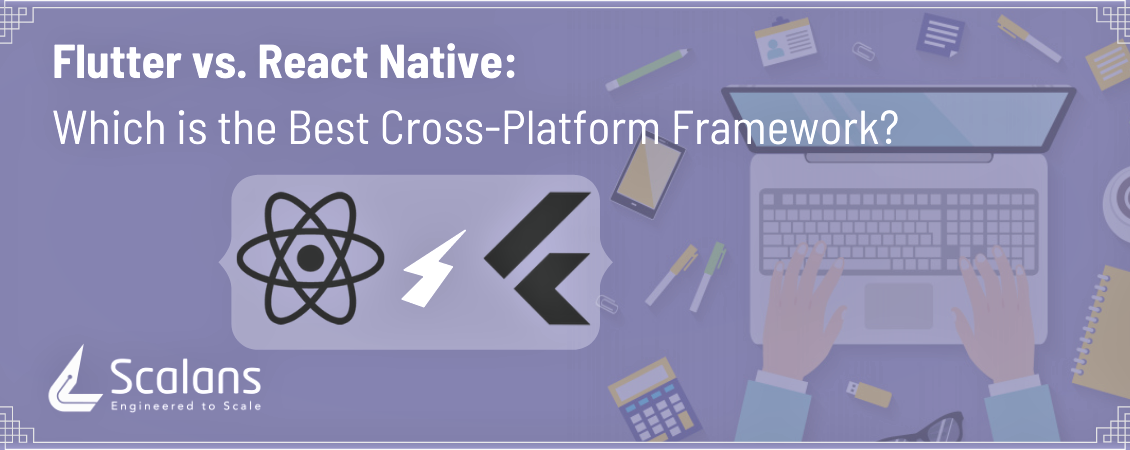
Flutter V/s. React Native: Which is the Best Cross-Platform Framework?
Building cross-platform mobile apps is increasingly becoming popular among small and big businesses, and two frameworks have made their mark in this affordable app development approach – Flutter and React Native.
Flutter, a product of Google launched in 2017, is a cross-platform SDK that creates visually stunning and customized mobile apps. It fastly compiles code and is highly recommended for startups.
React Native, built by Facebook and released in 2015, creates native iOS and Android apps using a single codebase. It has a strong developer community and is suitable for any type of business.
Now, which one is the best? Well, a tough question indeed! So, let’s analyze the key features of the two technologies based on five main factors.
- Programming Language
Flutter utilizes Dart, a fairly new multi-paradigmatic language, for programming. It has many object-oriented concepts that can be quickly grasped by C++ and Java developers.
But, React Native uses the more familiar and widely used JavaScript for coding. This even helps web developers to easily switch to mobile app development.
- User Interface Components
Flutter has in-built UI components; two sets of proprietary widgets – Material Design and Cupertino, that help create 100% customized UI designs. Material Design widgets conform to Android style and Cupertino widgets implement iOS style.
React Native leverages native UI components of Android and iOS for building user interfaces. The framework has only UI rendering components and device access APIs, and relies mainly on third-party libraries to access native modules.
- Developer Productivity
Flutter supports Hot Reload functionality that eases app development process. However, for complex projects, developer productivity can decelerate owing to learning newer concepts and getting little access to Dart-oriented text editors and IDEs.
JavaScript developers can easily work on React Native and they can choose the text editors and IDEs of their choice. Hot Reload is also a feature of React Native.
- Performance
Flutter exhibits superior native performance; thanks to Dart compilers that can interact with native components using C++ code; without the help of a JavaScript bridge. Hence, an animation standard of 60fps can be easily achieved in Flutter apps.
On the other hand, React Native is dependent on JavaScript bridge for connecting with native components, thus comparatively reducing app performance.
- Documentation
Flutter, even though a new technology, has a clear and organized documentation, making app development a relatively easier job. However, less experienced developers may find the documentation difficult to comprehend.
React Native has a somewhat messy and less detailed documentation; many basic information related to various tasks are missing.
Conclusion
Both technologies are open-source and offer a native experience to their users. So, to choose between the two can be a difficult task. But with the right guidance of an experienced mobile app development company, you can select the framework most suited for your project.



